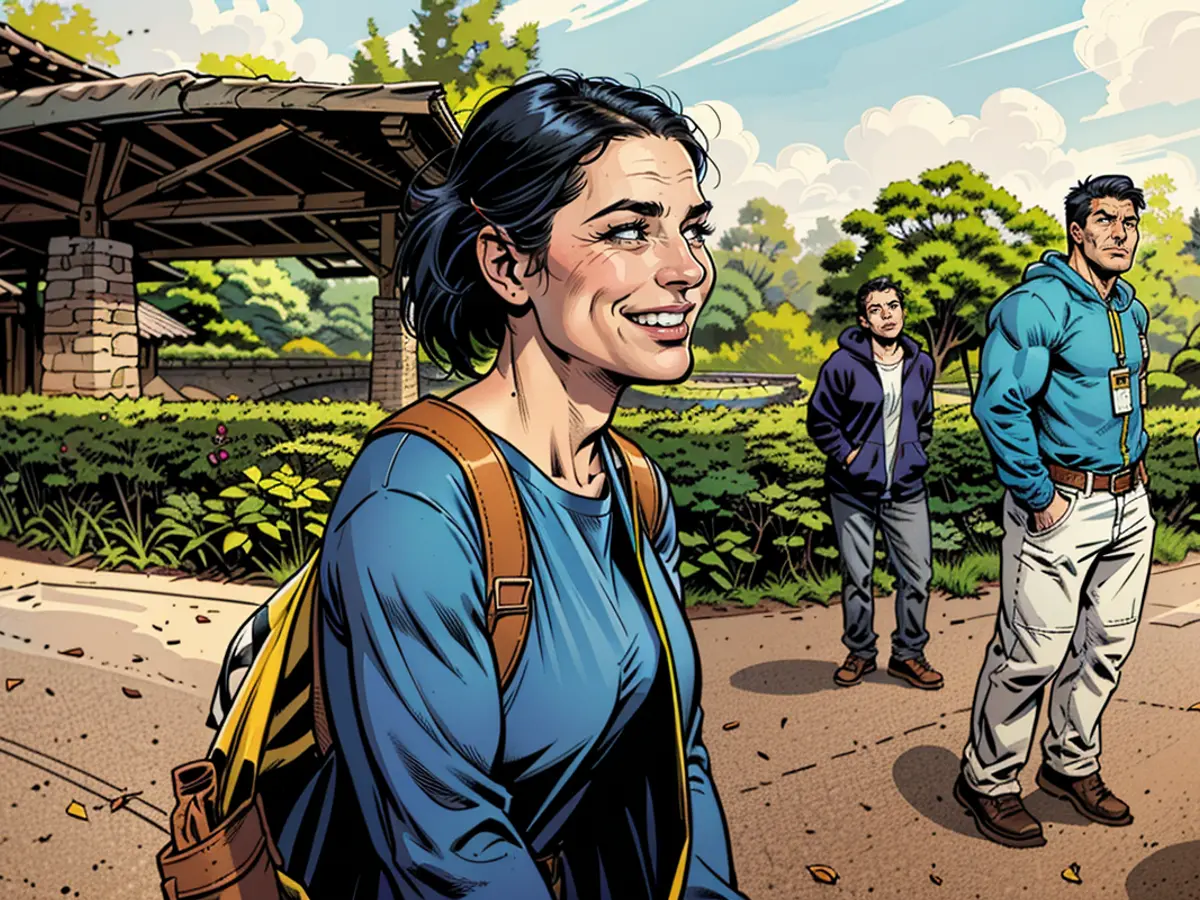One possesses a substantial appetite, the other prefers seclusion. The newest representatives of China's panda diplomacy arrive in Washington D.C.
A FedEx cargo plane named "Panda Express," carrying baby pandas Bao Li and Qing Bao, aged 3, touched down at Washington Dulles Airport at 9:53 a.m. on a Tuesday.
These two pandas are on loan to the Smithsonian's National Zoo for a decade, with an annual fee of $1 million to contribute to conservation efforts in their homeland, China.
The National Zoo's previous pair of pandas, along with their cub, returned to China when their lease expired in November the previous year. Their departure led to numerous heartfelt goodbyes and left the zoo's panda exhibit vacant for 11 months.
China's renewed diplomatic relation with the US through pandas is a rare positive aspect in the strained ties between the two world powers, which have been complicated by issues such as trade, technology, geopolitics, and more.
Bao Li was born in China's Sichuan province, but he has strong family ties to Washington. His mother, Bao Bao, was a celebrity at the National Zoo in 2013 and returned to China four years later. His grandparents, Meixiang and Tian Tian, resided at the zoo for 23 years before their lease expired last year.
Bao Li is loaded into the truck. "Bao Li has a massive personality. He's a lot like his grandfather, Tian Tian," said Mariel Lally, a panda keeper from the National Zoo who accompanied Bao Li and Qing Bao on their flight to Washington.
Lally had spent 10 days getting acquainted with the two pandas at a research base in Dujiangyan, a city situated among the lush green mountains near the bears' natural habitat. And she could already see intriguing traits in them that would captivate a new generation of visitors.
Fans are already captivated by Bao Li's family history, Lally said. "But when people meet him, they're going to lose it. He's lively, loves people, and is just a riot."
On the other hand, Qing Bao is somewhat reserved and introverted. She often spends time sleeping on her climbing structure or relaxing in a tree, but she's highly alert when active.
"She's very low-key," Lally said. "She doesn't always come when called because she'd rather do her own thing. So, she's a bit more independent than Bao Li."
"She's also quite small, so people are really going to adore how tiny she is," she added.
Qing Bao paces around her transport crate. The National Zoo was the first in the US to exhibit the rare, cuddly animals as part of China's "panda diplomacy" – a decades-long strategic tool to win allies, build goodwill, and showcase soft power.
It all started with US President Richard Nixon's groundbreaking trip to Communist China during the Cold War. During that historic visit in 1972, first lady Pat Nixon was reportedly drawn to the pandas at the Beijing Zoo.
Weeks later, a pair of pandas, Ling Ling and Hsing Hsing, arrived at the National Zoo in Washington.

On their first day of public display, the two pandas attracted a reported 20,000 visitors. Since then, giant pandas have become the zoo's main attraction, drawing millions of visitors.
The zoo's 24-hour Giant Panda Cam has garnered over 100 million page views since its launch in 2000.
It went offline last November, when Mei Xiang, Tian Tian, and their youngest cub Xiao Qi Ji left for China. And for the first time in 23 years, the giant panda exhibit at the National Zoo was empty.
A Long Journey Filled with Snacks
Extensive preparations were made for Bao Li and Qing Bao's trans-Pacific journey.
A delegation from the Washington zoo traveled to the Chinese province of Sichuan to assist with their transition.
Bao Li and Qing Bao were taken off public display and placed in quarantine on September 13, in a fenced-off area away from the throngs of tourists.
Ren Zhijun, a Chinese keeper who had been taking care of the two bears in quarantine, noticed a significant change in their dietary habits. Bao Li, who loves bamboo shoots, could consume twice as much as Qing Bao, who favors carrots and apples.
Bao Li and Qing Bao spent their final days in Dujiangyan training for their first long-haul flight in their shipping crates.
The crates are designed in a way that enables keepers to feed bamboo, bamboo shoots, fruits, and fresh water to the bears during the flight.
Before their departure from the Dujiangyan base, Bao Li appeared calm and serene, moving around the crate slowly, while Qing Bao was more restless. She stood up and stuck her snout and paws out through the bars as her crate was loaded onto the truck.
At a farewell ceremony earlier on Monday near the base, the Washington zoo's director, Brandie Smith, commended half a century of collaboration between the Smithsonian and its Chinese partners in panda conservation.
"These beloved black and white bears are icons in Washington DC, and loved globally," Smith said. "Our team and legions of fans eagerly await Bao Li and Qing Bao's arrival at the Smithsonian's National Zoo."

The Smithsonian's National Zoo is excited to welcome Bao Li and Qing Bao, as they are now us, after their long journey from China. During their time in quarantine, Bao Li, with his love for bamboo shoots, was found to have a larger appetite than Qing Bao, who prefers carrots and apples.








